Everything you need to run touchless omnichannel order operations at scale.
Order Hub provides all the components needed to run touchless omnichannel order operations at scale.
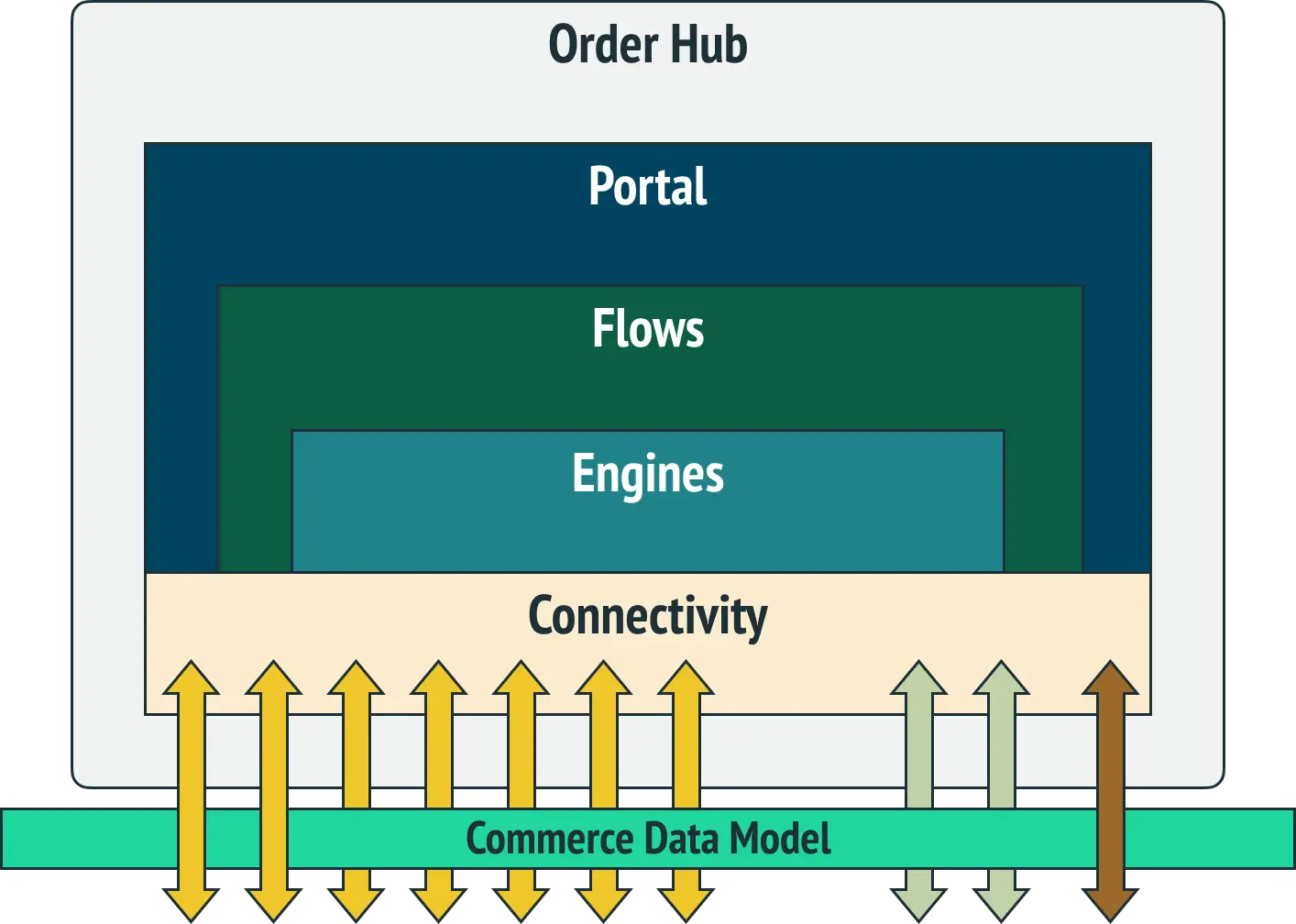
Interface to configure, operate, and optimize order operations
Structured workflows that orchestrate order operations processes
Microservices that use configurable business logic to execute specific actions
Commerce-aware integrations via connectors, EDI, and unified API
Singular, communicable data format for all connected channels and applications
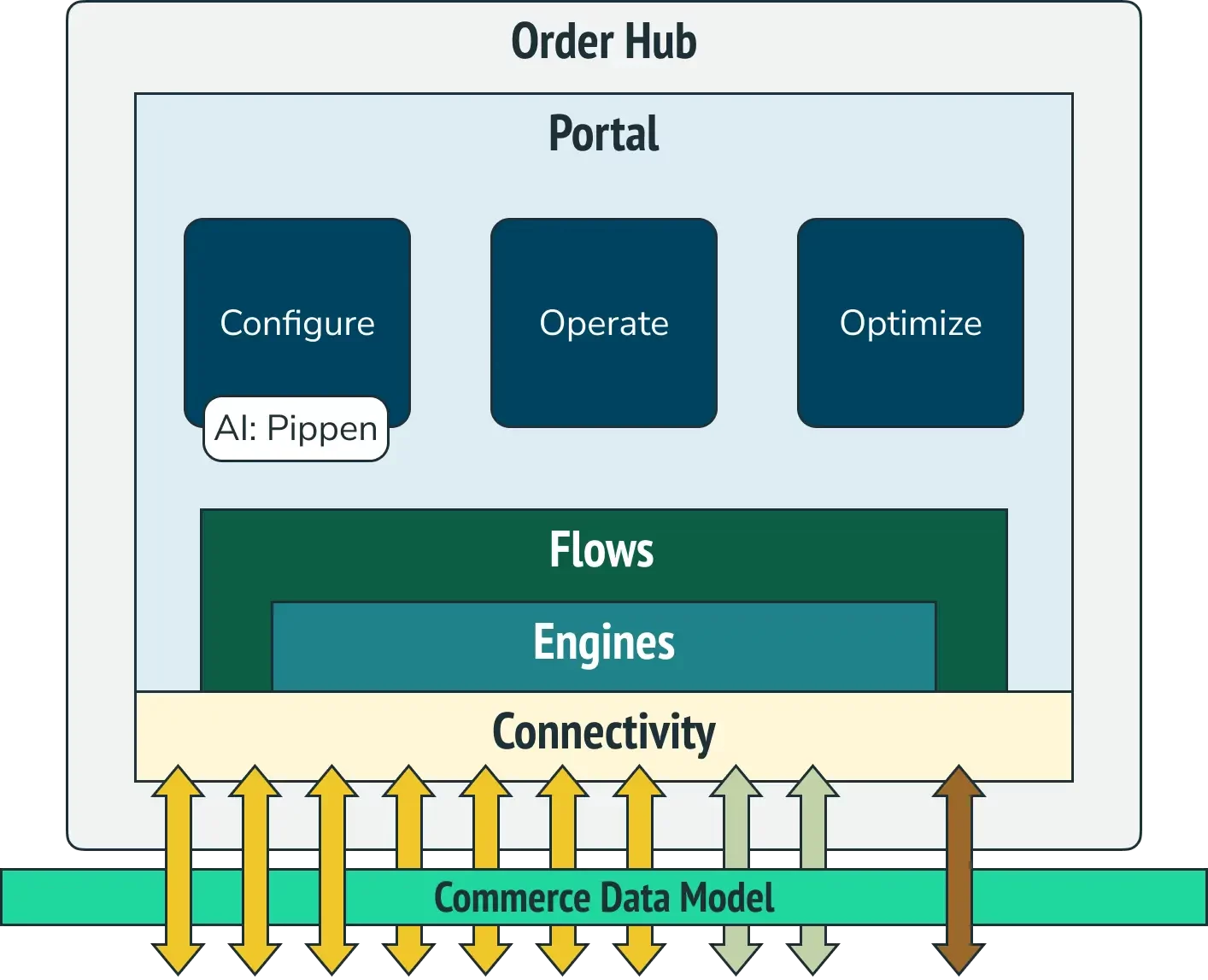
Portal is a merchant-friendly interface to configure, operate, and optimize omnichannel order operations.
Go live 10x faster with point-and-click connector, engine, and flow configuration.
Setup multiple brands in minutes with configuration import, export, and cloning.
Pippen, our AI assistant, ensures every requirement—no matter the complexity—is precisely configured.
Intervene only when necessary with continuous order lifecycle monitoring and real-time exception notifications.
See the complete picture from a single screen with a LiveOps dashboard.
Analyze everything with OrderOps reports and data streaming to data lakes and warehouses.
Expand channels and change providers at will—without any operational bottlenecks, chaos, or all-nighters—by adding, swapping, or removing connectors and flows.
Improve operational efficiency and maintain alignment with evolving business priorities by fine-tuning engine rules and logic.
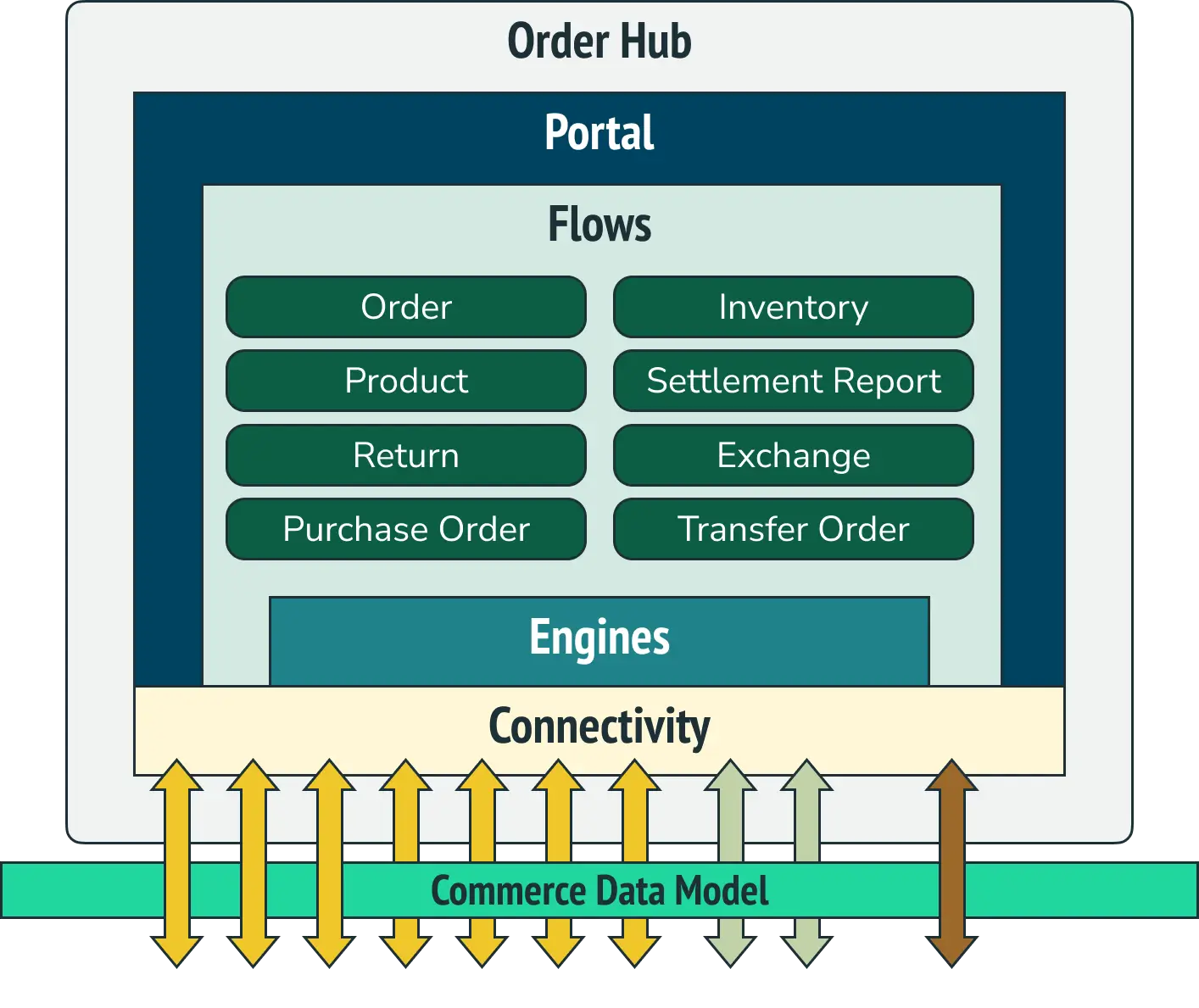
Flows orchestrate predefined and structured processes that encompass order operations best practices.
Best practices distilled into 40+ flows that keep every entity of the order lifecycle moving freely across all channels and applications. Examples:
To orchestrate these best practices, flows use a permutation of:
Work in tandem—e.g., order to fulfillment and order to ERP—and in sequence—e.g., order to fulfillment, fulfillment info to order source—to automate processes.
Can be triggered automatically —by an event from a connected third-party app or by another flow—or manually via user input or as part of a review process.
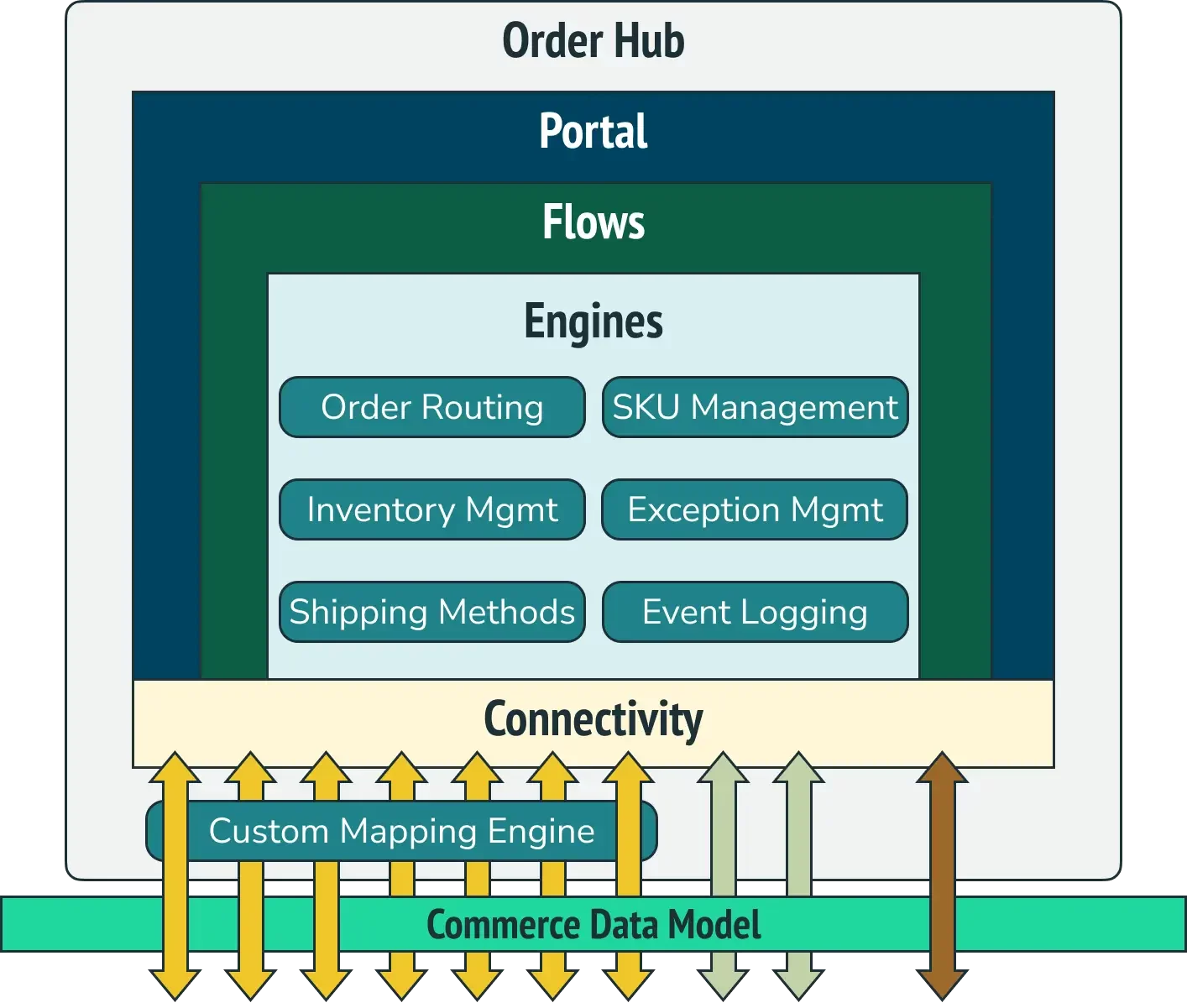
Engines use rules-based logic to execute a specific action (route, sync, notify, update, etc.) when invoked.
Holds, splits, and routes orders to optimal fulfillment destination(s) based on prioritized business logic.
Product bundling, kitting, SKU mapping, and SKU swap. Can be either dynamic or static.
Inventory sync, inventory buffers, location maps, suppliers, and purchase and transfer orders.
Monitors for anomalies, exceptions and over-fulfillments and sends real-time notifications.
Maps shipping names across selling and fulfillment channels.
Keeps logs of who, what, when, and why for all user and system activity.
Ability to customize connectors pre-populated entity mappings to match any requirement. Runs both inbound and outbound at the edge.
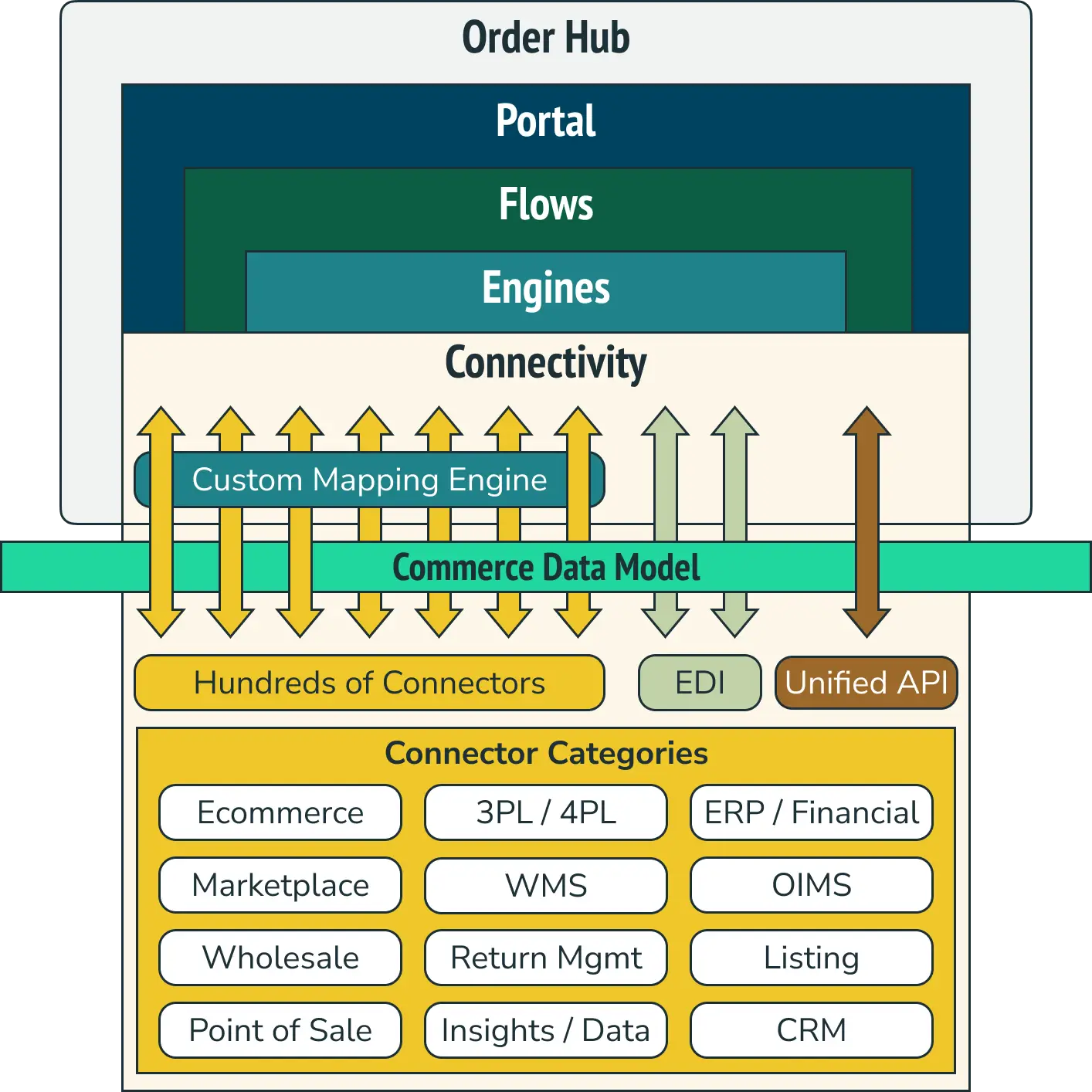
Connectivity integrates channels and applications to the Order Hub quickly and reliably.
Connectors
Library of smart commerce-aware integrations that are quick to connect and easy to configure. Connectors are pre-mapped to the commerce data model, and can be customized to match any requirement using the custom mapping engine. Connector categories include:
Unified API
REST APIs to integrate any custom application to the Order Hub and subsequently the entire library of Pipe17 supported connectors.
EDI
Unifies EDI document types to the Order Hub, eliminating silos between EDI and DTC flows.
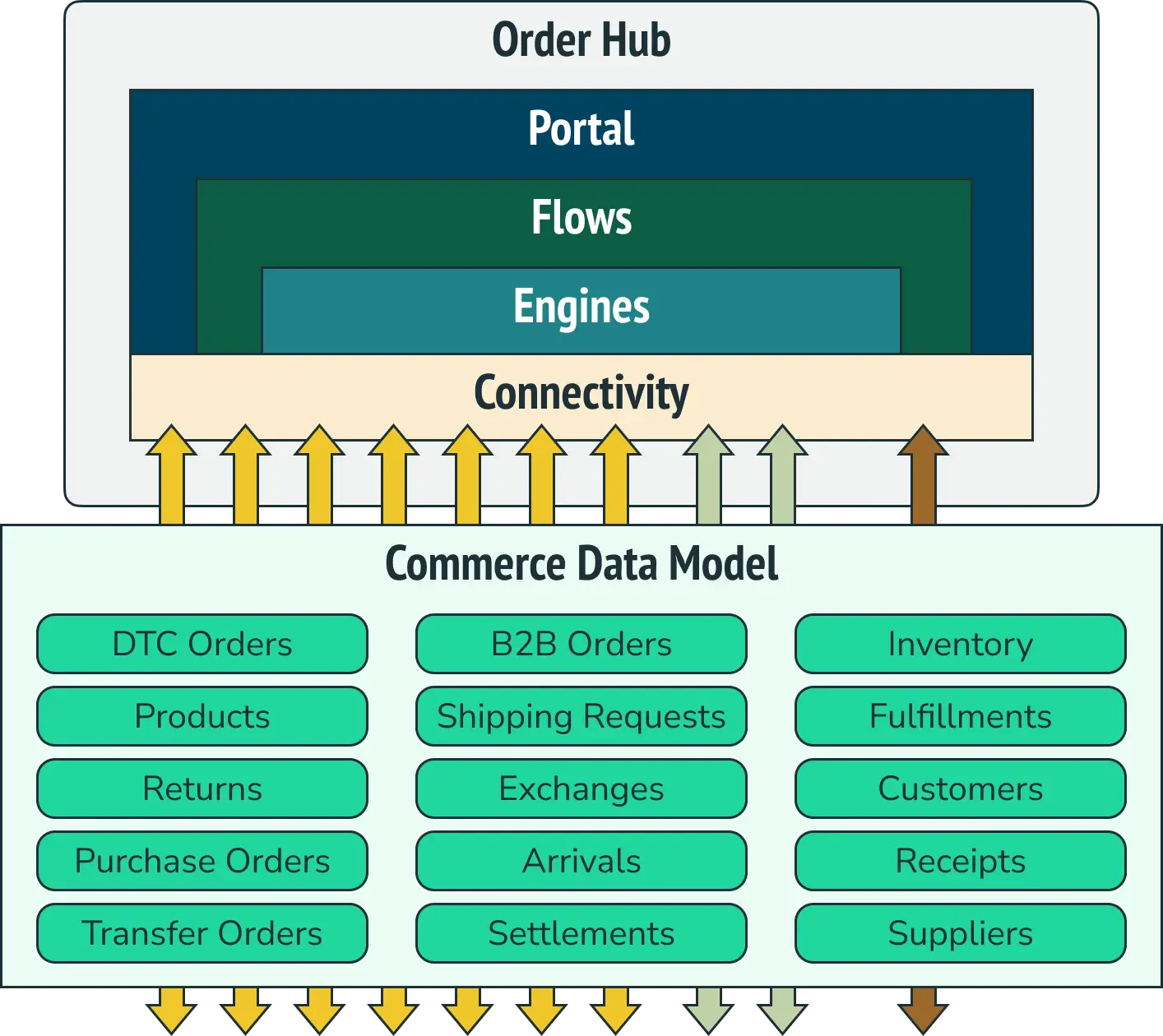
Commerce Data Model provides a single, communicable format for entities across all channels and applications.
The Commerce Data Model encompasses any entity (product, inventory, fulfillment, customer, return, etc.) that is created, updated, or referenced during an order lifecycle.
Commerce Data Model Enables
A singular format for 100s of 3rd party applications
Simple omnichannel order lifecycle data management
Error-free handoffs across channels and applications
Rich data ingestion, normalization, and streaming
Leveraged custom integrations with unified API
Commerce domain and application interoperability
Discover how brands across DTC, B2B, and retail are taking charge of omnichannel operations.
Explore Solutions for Merchants
Discover how 3PLs, WMSs, and SaaS providers are making fulfillment more profitable.
Explore Solutions for 3PLs
Add insights to your inbox.
Sign up for connected commerce and post-checkout insights curated by Pipe17.